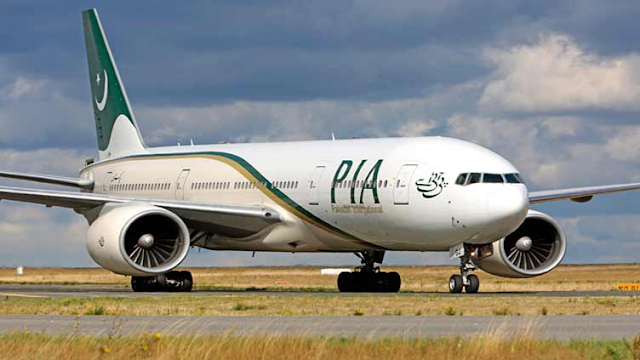PIA's Financial Tailspin Grounds Number of Flights
Pakistan International Airlines (PIA), the national flag carrier of Pakistan, has found itself in a dire financial predicament that has forced the airline to cancel a significant number of domestic and international flights. The root cause of this crisis can be traced back to the failure of PIA to settle its dues with the Pakistan State Oil (PSO), its primary supplier of aviation fuel.
The inability to pay for fuel supply has had cascading effects on PIA's operations, resulting in disruptions and cancellations that have inconvenienced passengers and damaged the airline's reputation. This financial tailspin has raised concerns not only about the immediate impact on travelers but also about the long-term viability of PIA.
The turmoil began when PIA struggled to meet its financial obligations to PSO, a crucial partner in the airline's day-to-day operations. Fuel costs account for a significant portion of an airline's expenses, and PIA's inability to pay for this essential resource naturally led to a crisis. As a result, PSO suspended fuel supplies to PIA, effectively grounding several of the airline's flights.
The cancellation of flights, especially on domestic routes, has had a profound impact on passengers, many of whom rely on PIA for their travel needs. The abrupt disruptions have caused inconvenience and financial losses for travelers, with some being forced to seek alternative means of transportation or endure delays that affect their schedules.
Internationally, the cancellations have damaged PIA's reputation as a reliable carrier, leading to concerns among foreign travelers and travel agencies about booking flights with the airline. This loss of trust may have lasting consequences for PIA's ability to attract and retain customers in the highly competitive aviation industry.
The PIA management has been working to negotiate a resolution with PSO to resume fuel supplies, but progress has been slow and complicated by the airline's already precarious financial situation. PIA has faced financial troubles for several years, with debt levels mounting and recurring losses in its financial statements. These financial challenges have made it increasingly difficult for PIA to meet its obligations and maintain its operations.
The government of Pakistan has also been grappling with the financial woes of PIA, as the airline is state-owned. Various attempts have been made to bail out the national carrier, including restructuring efforts and seeking financial assistance from the government. However, the situation remains complex, and finding a sustainable solution to PIA's financial problems has proven to be a significant challenge.
In conclusion, PIA's recent cancellation of numerous flights due to its inability to pay PSO for fuel supply underscores the precarious financial position of the national flag carrier. The disruptions have inconvenienced passengers, damaged the airline's reputation, and raised questions about the long-term viability of PIA. While efforts are underway to resolve the crisis, the situation serves as a stark reminder of the financial challenges faced by state-owned airlines and the need for comprehensive reforms to ensure their sustainability in a highly competitive industry.



Comments
Post a Comment